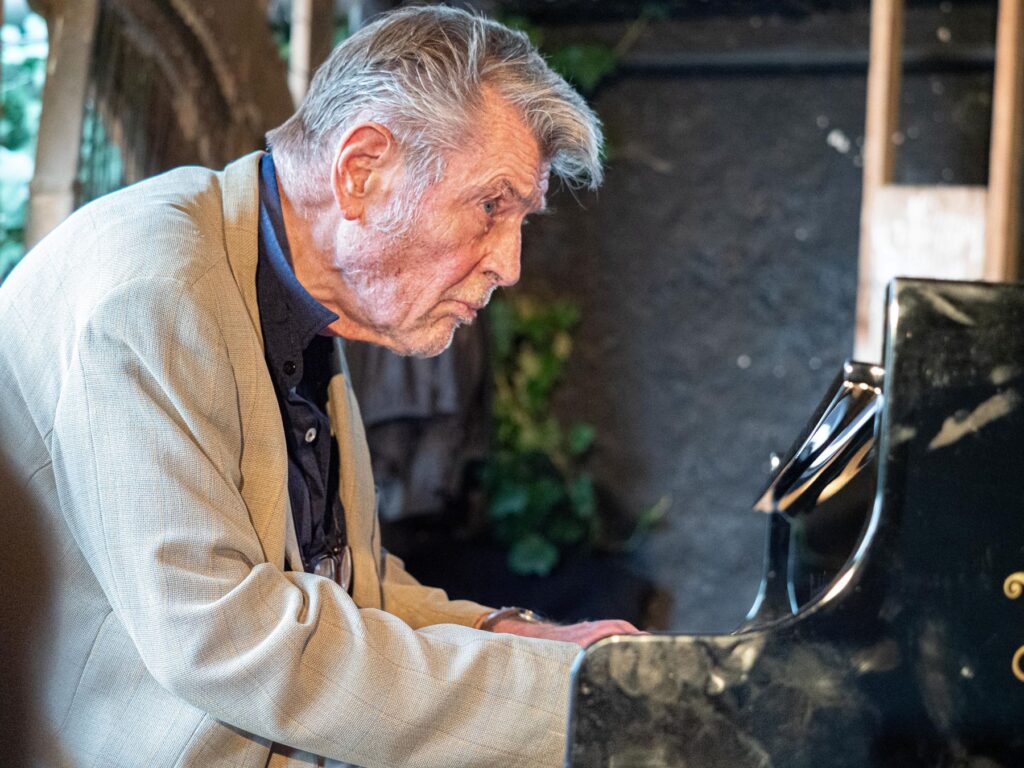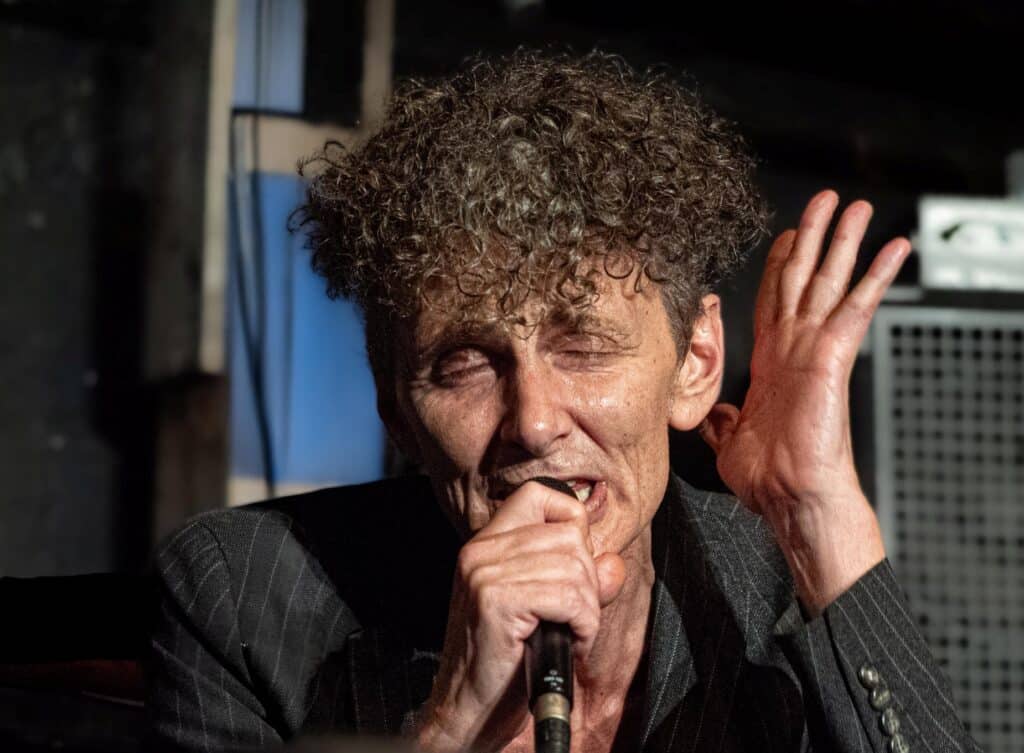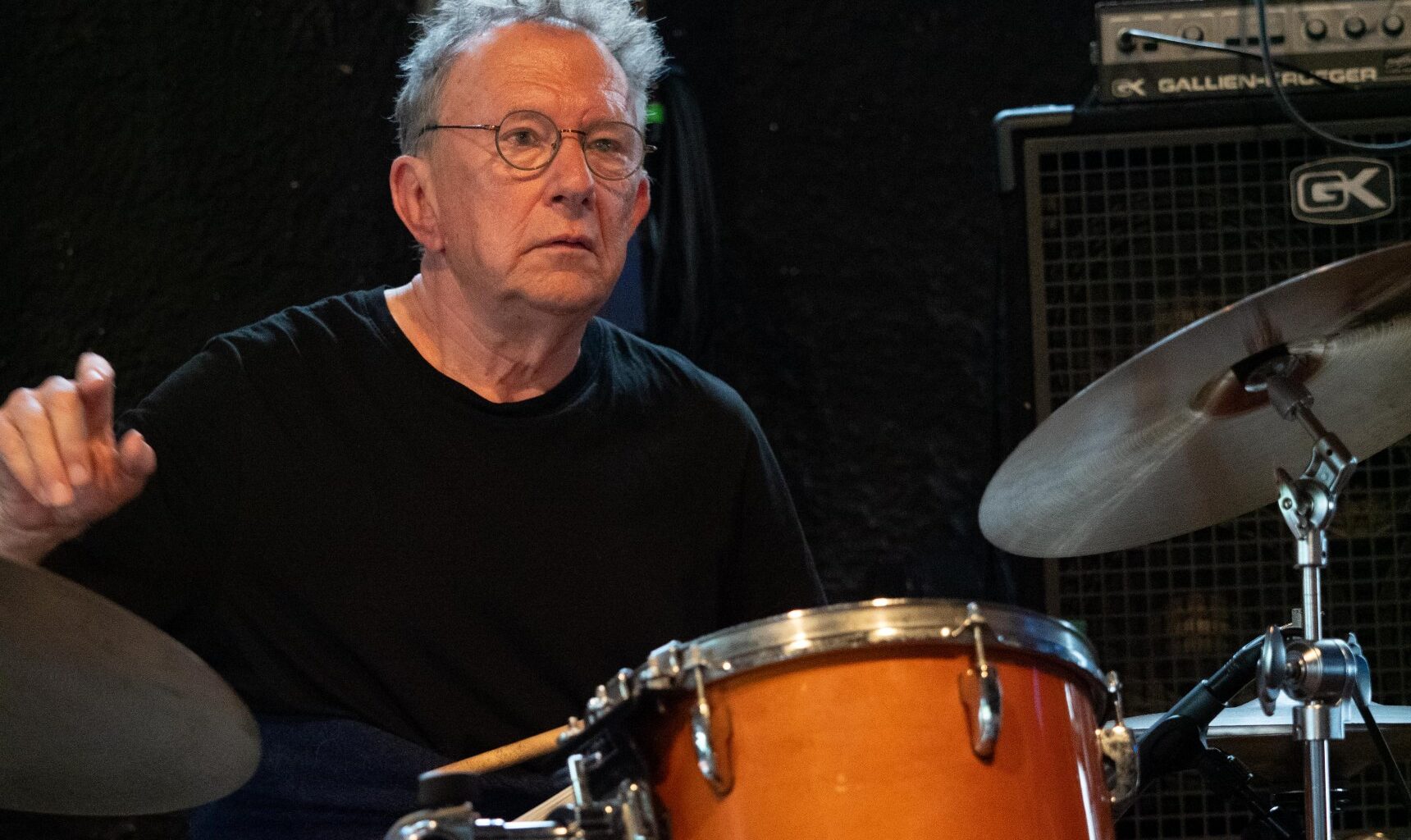The Konfrontationen Festival is now at Edition 45, and run from the start by Hans Falb. It’s always in the same venue, the Jazzgalerie, a cafe extended at the back for an audience of around 300 in a small village about two kilometres from the Hungarian border. It balances radical contemporary with free improvised music.
Perhaps because the audience is so appreciative, one is easily caught up in the atmosphere. So the time passes quickly and it is no problem focusing for nearly 8 hours on this music until 1.30 a.m. The audience, unlike the bands, generally is older in profile, but knowledgeable and appreciative which seems to inspire the musicians. Many seem to continue to hang around till dawn, talking about the music, and listening to sophisticated jazz DJs.
This is a three-day/night festival and I attended the second night. The opening band really set a high standard. Berlin-based Alexander von Schlippenbach is rightly regarded as one of the piano role models as one of the “first generation” of European free improvisers in the 60s. He remains one of the most charismatic and engaging pianists at the age of 87. Every note he played seemed to count, balancing sensitivity and power. Willi Kellers, a stalwart of the improvised scene on drums, known for his work with pianists like Julie Sassoon and Keith Tippett, gave a sympathetic momentum to keep the set flowing. The other musicians, Nuno Torres on alto saxophone, Guilherme Rodrigues on cello and Ernesto Rodrigues on violin, seemed to give more of a texture most of the time. though at times provided ideas which inspired Schlippenbach.
 Alexander von Schlippenbach. Photo copyright Herbert Höpfl /Concerto-Magazin
Alexander von Schlippenbach. Photo copyright Herbert Höpfl /Concerto-Magazin
Younger musicians often appeared with their mentors. Such was the case with the trio led by trumpeter Franz Hautzinger with the young energetic rhythm section of Vinny Cajado on bass and Lukas König on drums. I had heard Hautzinger in the band Beyond The Pulse the previous night as part of the Vienna Kultursommer. For that performance the quartet had been relatively interactive, intense and almost acoustic. (With Daniele Camarda on bass, Michael Prowaznik on drums and Isabella Forciniti on electronics.)
Here at Nickelsdorf, we had some similar moments. But overall we had a muscular performance, with high energy provided by the young band. König is a go-to musician for this harder-edged improv music, as I have heard on a number of occasions at the Südtirol Festival. And Cajado, mainly on electric bass, was a great foil. Multiphonics by Hautzinger added to the impact of the set.
We were buzzing from that set before the last band, which included John Edwards on bass. Austrian-based pianist Elisabeth Harnik on had a percussive approach at the piano but never seemed to miss the right notes. She was matched by the other instruments, especially, of course, the drums of The Necks’ Tony Buck, but also Edwards’ powerful technique. Harri Sjöström on soprano and sopranino saxophones, was able to soar away, sometimes by adding extra effects, like a trumpet mute stuffed into the bottom of the instrument.
 Christian Reiner. Photo copyright Herbert Höpfl /Concerto-Magazin
Christian Reiner. Photo copyright Herbert Höpfl /Concerto-Magazin
There could hardly have been a greater contrast than with the Berlin/Vienna quartet Superluft. Almut Schlichting on baritone sax, Susanna Gartmeyer on bass clarinet and Christian Marien on drums interwove and provided dynamic momentum to the extrovert vocals of Christian Reiner. Reiner declaimed, with a visual and musical passion in a most engaging manner, which included elements of Dada, surrealism and sprechgesang. It was impossible to tell what he actually improvised as poetry or what was already written. A fascinating contrast to the performance of poet and singer Anthony Joseph whom I had heard the previous week at Inntöne.
John Edwards’s presence in Nickelsdorf was a reminder of quite how dynamic the UK’s improv scene is. I noted that the previous night’s gig by Pat Thomas’s quartet [Ahmed] had been a huge success: it was still a big talking point in the bar throughout the time I was there. If only there could be more musicians from our scene at these festivals…
That said, Hans Falb clearly has a good feel for what is going on in the improv scene. There may be question marks every year about what happens next, and indeed whether a successor is about to take it over, but for fans of free improv it’s essential.
SCHLIPPENBACH/TORRES/RODRIGUES/RODRIGUES/KELLERS – Alexander von Schlippenbach (piano), Nuno Torres (alto sax) , Ernesto Rodrigues (violin), Guilherme Rodrigues (cello), Willi Kellers (drums, percussion)
SUPERLUFT – Christian Reiner (vocals), Almut Schlichting (baritone sax), Susanna Gartmayer (bass clarinet) , Christian Marien (drums)
HAUTZINGER/CAJADO/KÖNIG – Franz Hautzinger (extended trumpet).Vinicius Cajado (double bass), Lukas König (drums, percussion)
FLIGHT MODE – Harri Sjöström (sopranino sax, soprano sax), Elisabeth Harnik (piano), John Edwards (double bass). Tony Buck (drums, percussion)
